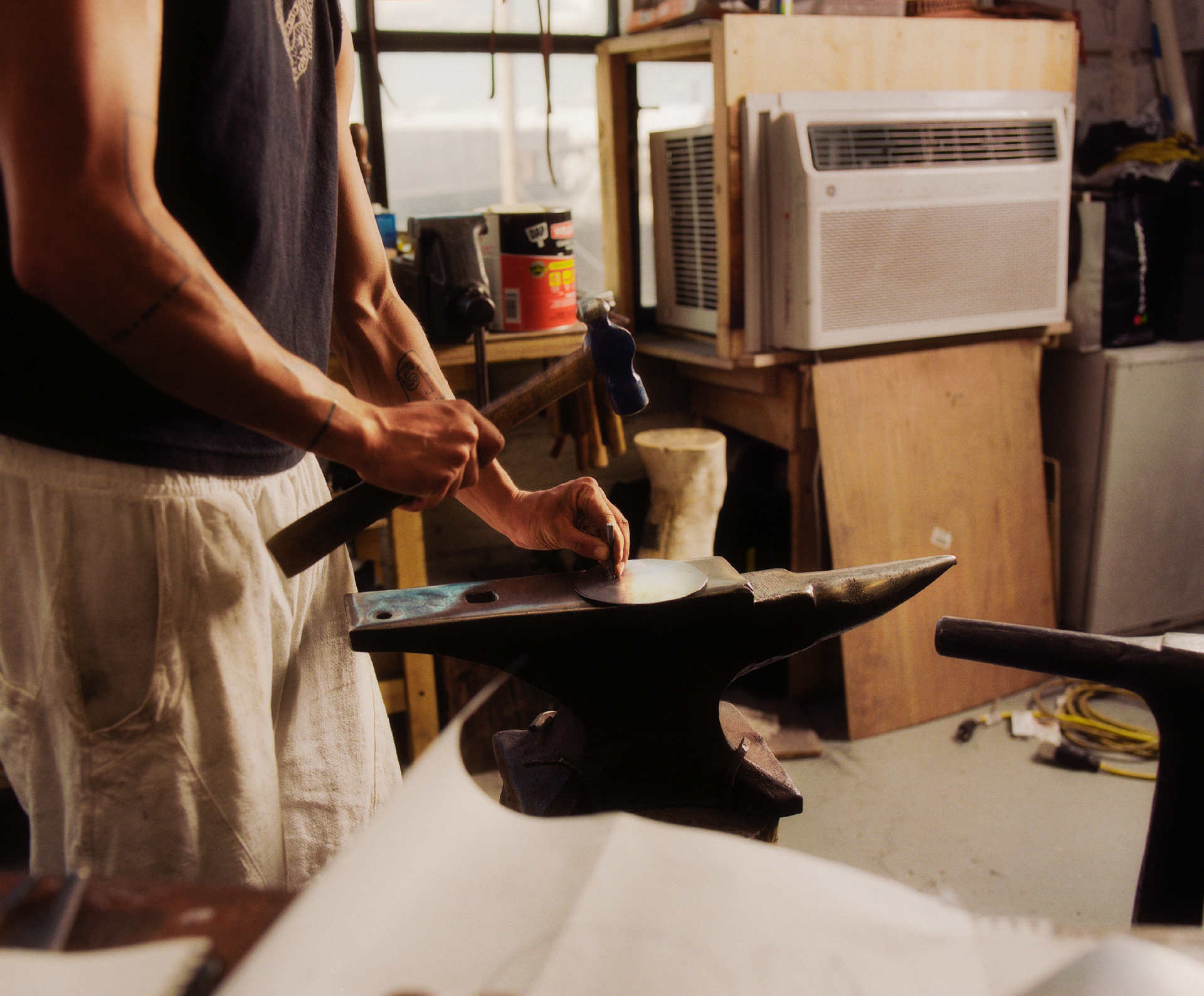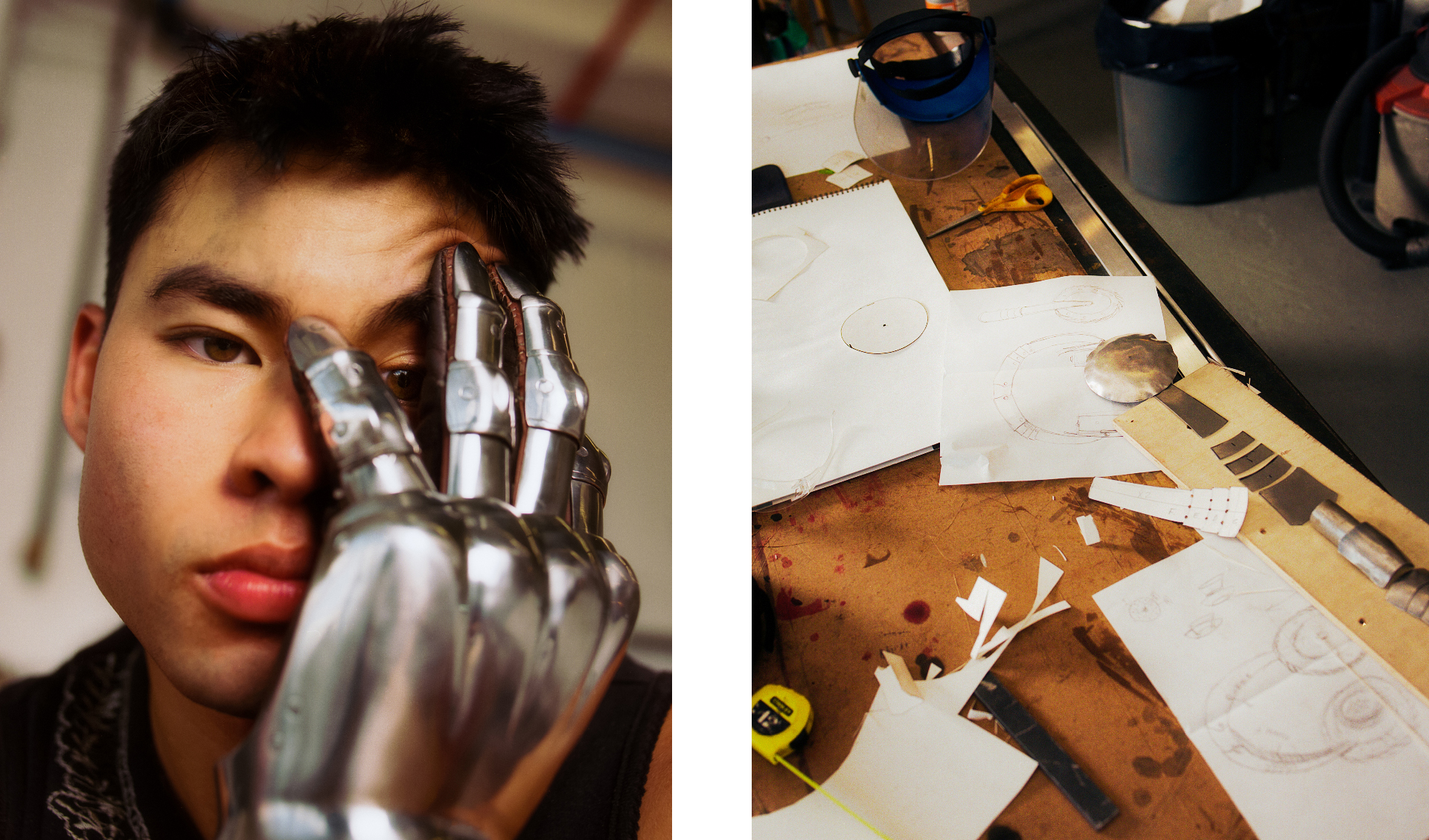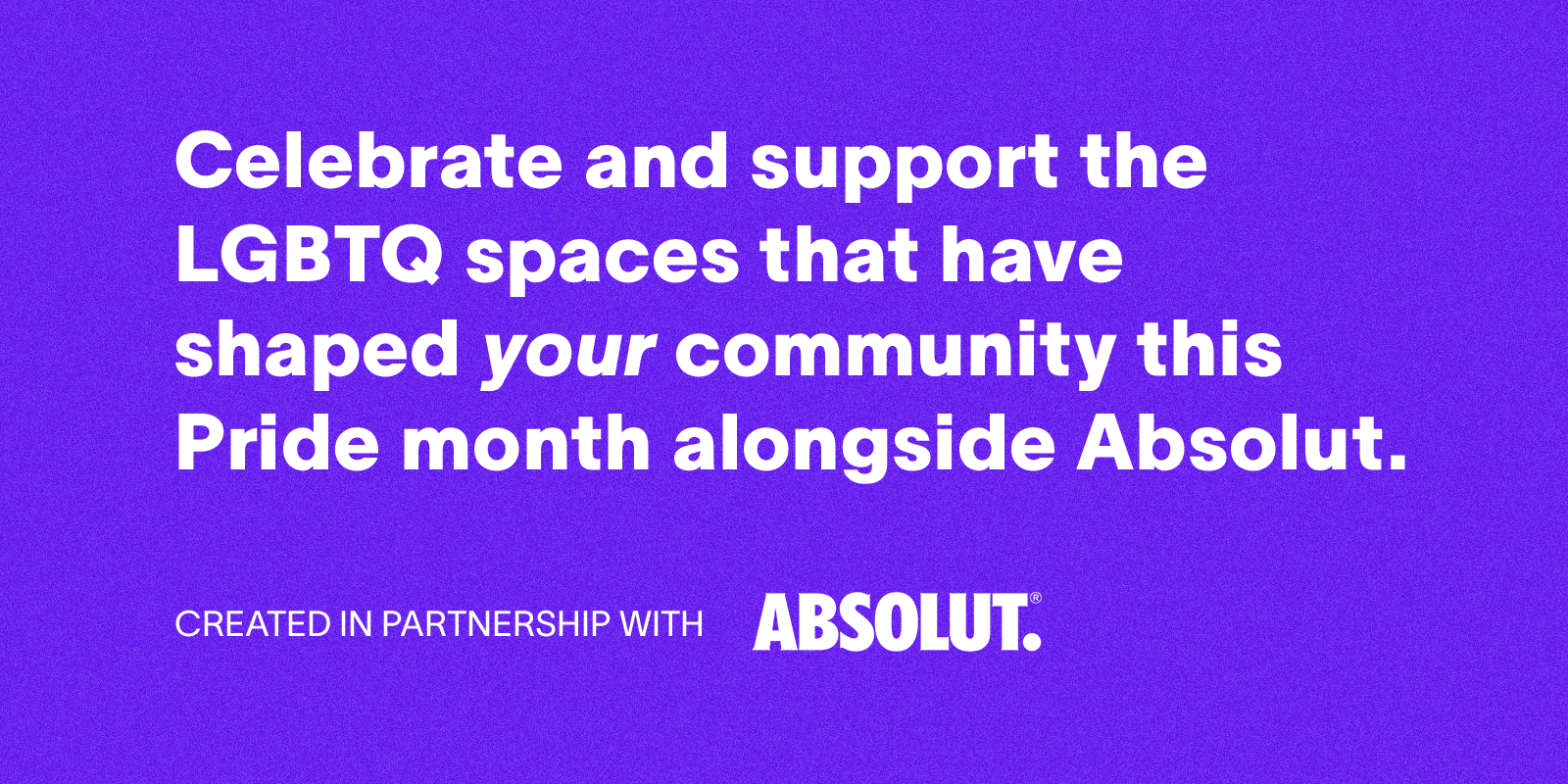Transmasculine Actors Are Still Waiting for Their “Tipping Point”
June 17, 2022(A note about language: While this piece discusses the lack of both trans male and transmasculine roles on TV, several of the actors and producers interviewed identify as transmasculine and non-binary.)
It’s been eight years since Time magazine proclaimed that we were in the midst of the “transgender tipping point.” With Laverne Cox striking a power pose on the magazine’s cover in all her radiant glory, the image seemed to indicate a pivotal shift: Here we were, on the frontiers of a new gender politic, and queerness was “cool” now. Change was afoot—just a year later, your gay friends would be heading to city hall to get married. Everything seemed like it was on the brink of a profound change—for the better, for once.
Today it’s clear that headline was perhaps a preemptive assessment of the times. Sure, we tipped, but now we’re barreling down a mountainside: Between the ongoing legislative crusade targeting trans youth (and now trans adults) and the ever-escalating epidemic of violence against trans people of color, the promise of 2014 feels farther away than ever.
What’s more, the promise of a boom in trans visibility—which felt so radical and imminent at that moment—seems to have fizzled. Although GLAAD’s yearly Where We Are On TV report shows that there have been gains in LGBTQ representation overall in recent years, those increases are not uniform across the entire community. Some groups continue to be left out: Between 2019 and 2022, the number of trans characters on TV who are also non-binary jumped from just two to eight. Over the same period, the number of recurring trans male characters ticked up even more gradually—increasing from 12 to 14. That’s fewer than the number of roles for trans women on TV, whose numbers have increased fairly steadily in the years since 2015, hitting an all-time high of 21 in the 2019–2020 season.
While these numbers don’t speak to the quality of the representation, they echo what transmasculine actors told VICE: that the opportunities they are afforded are sorely lacking. And when it comes to roles that show their full humanity instead of relying on sensationalism or Trans 101 narratives, the field is pretty barren.
“With the auditions, sometimes I’m like, ‘What the hell?’” D’Lo, an actor, comedian, and writer, told VICE with an exasperated laugh. Although D’Lo—who has appeared in Transparent and Sense8 and is performing in an upcoming one-man show about his transition—has been fortunate enough to not see a script that’s made him shake his head since 2020, he said it still feels like people just still don’t know what do with trans people. “You don’t know if you can say anything about what was written for the character,” he added. “You're like, Do I book the job first, and then speak up? Or do I speak, and then risk not getting the job?”
The Paradox of Invisibility
The history of trans representation in Hollywood is one of violence. In major films like Silence of the Lambs and The Crying Game, trans women characters have historically been represented as villains or as living tragic lives that are brutally ended. The industry’s long history of hiring cis male actors to play trans women—such as Chris Sarandon in Dog Day Afternoon and Eddie Redmayne in The Danish Girl—further perpetuates this cycle of brutality. Actress and writer Jen Richards has cited it as a contributing factor in the record homicide rates targeting trans women, particularly Black trans women: These portrayals undermine the lived reality of trans identities by encouraging audiences to see the characters as men.
Only quite recently has the tide turned when it comes to trans feminine representation in mainstream film and television—with shows like FX’s Pose and movies like A Fantastic Woman gaining attention from the Emmys and Oscars. But for the massive glut of media that sensationalizes and vilifies trans women, there are still relatively few movies or shows that address transmasculine experiences at all. Today, the most prominent example still remains Hilary Swank’s portrayal of Brandon Teena in the 1999 film Boys Don’t Cry—a movie that has, as the New York Times put it in a 20th anniversary retrospective, a “divisive legacy.”
Filmmaker and producer Alex Schmider, who has worked on documentaries like Changing the Game and Disclosure, said that Boys Don’t Cry kept him in the closet. The Kimberly Pierce–directed film depicts the final days of Teena’s life, culminating in his savage killing in Humboldt, Nebraska at the age of 21 years old. Teena was sexually assaulted and murdered by two men after they discovered that he was transgender during a Christmas Eve party in 1993.
Schmider said that watching these scenes unfold on screen was “terrorizing,” especially when he had so few other examples of trans male experience to compare them to. “I saw that he knew who he was and that he was loved,” Schmider told VICE. “He was in this relationship that was like any young romance happening. It was both extremely relieving, and at the same time, it was terrifying. I postponed my own self-acceptance for about a decade after that because I could not reconcile how if I've accepted who I was that my life would just be ended, very violently.”
Swank, a cisgender woman, was awarded an Oscar for her portrayal of Teena. It’s telling that, at the time of the film’s release, the character’s trans male identity was often erased in discussions of the movie. When she won Best Actress at the 2000 Academy Awards, the announcer referred to Boys Don’t Cry as “the true story of a girl living as a boy in Nebraska.” He initially referred to Teena as a “boy” before stopping himself to misgender the film’s protagonist live on air.
This is the paradox of transmasculine invisibility: While it affords a certain layer of protective coating, that erasure can itself be a form of violence. Scott Turner Schofield, an actor who has appeared in shows like The Blacklist and the HBO Max queer history miniseries Equal, said the historic lack of representation affirming the identities of trans men contributes to a very real mental health crisis in the community. Multiple independent studies have indicated high rates of suicidality and self-harm among transmasculine populations, who also face an elevated risk for eating disorders.
“Visibility is what gets trans women killed. Invisibility is what contributes to trans men killing ourselves,” Schofield told VICE. “If you can’t see yourself, it's really hard to be yourself.”
Since Boys Don’t Cry, there have been scarce examples of trans male characters in popular media, but increasingly, more of the few number of roles out there are depicted with depth and complexity. Brian Michael Smith plays Paul Strickland, a transmasculine firefighter on 9-1-1: Lone Star, and the Fox drama manages the tricky balance of neither ignoring the character’s identity entirely nor making it the center of every conflict. Leo Sheng stars as Micah, a transmasculine educator and therapist on Showtime’s The L Word reboot, subtitled Generation Q. Elliot Page’s character, Viktor Hargreeves, is set to transition in the upcoming third season of Netflix’s comic book adaptation The Umbrella Academy after the actor came out as trans in December 2020. The milestone represents the first time a major show will reflect an actor’s transition in the middle of its run.
Even in some of the less nuanced portrayals of trans masculinity, some see a sense of possibility. Daniel Sea’s portrayal of Max on seasons three through six of the original The L Word was one of the more formative pieces of transmasculine representation in the early 2000s, when there were no other characters on TV like him. Max marked the first recurring trans male character on a television show and one of the first times a non-cis actor played a transmasculine part—although the actor’s gender identity was widely misrepresented at the time. Sea identifies as trans and non-binary.
“Visibility is what gets trans women killed. Invisibility is what contributes to trans men killing ourselves. If you can’t see yourself, it's really hard to be yourself,” Schofield said.
The character’s storyline was far from a well-informed depiction of a transmasculine experience. The L Word was criticized for rehashing tired toxic tropes about trans men—namely, that transitioning results in uncontrollable aggression and misogyny—and amplifying misinformation about testosterone. Max grows a beard after just two weeks on hormone replacement therapy, when some trans men are never able to develop facial hair after years of taking T.
Sea, who has kept a low profile since the show aired, said he didn’t have “high expectations for what the experience would be.” But regardless of how poorly Max was depicted, a certain segment of viewers still recall feeling a profound sense of the world opening up upon seeing him. Many of those fans wrote to Sea to tell him how much Max meant to them, even if they wanted better for his character.
“I started getting letters, different people reaching out, and I still get them to this day,” he told VICE. “A lot of these guys are full-grown men now. I had the privilege to play this character who was their first encounter with what was possible for them.”
Increased visibility for transmasculine people isn’t a panacea for the myriad issues impacting the community, but this sense of another possible future is what drives many transmasculine actors and creatives to strive for better representation. Change is happening, they said, but it’s just happening a lot slower than anybody wants. Shows and movies take years of development from the initial pitch to when the world sees them, and by then, entire political landscapes have shifted.
Schmider sees representation as a pathway to having conversations that help end the cycle of violence facing all trans people. “No one should bear the burden of sole responsibility for any one community,” he said. “When so much of the emphasis is on trans girls and women, there may be some benefit to having some of that balanced by a diverse group of people sharing their stories.”
The Only One in the Room
It’s an unfortunate truth that when trans men and transmasculine actors do get hired, they’re often the only trans person on set. And while the presence of trans consultants—people who provide input and support from the writers’ rooms through production, to ensure trans actors are advocated for—has helped ameliorate this somewhat, it’s still pretty common that trans actors are doing a lot of the work themselves.
Schofield is one such example. In addition to his prolific career as an actor, appearing in the popular soap opera The Bold and the Beautiful and the upcoming juggalo buddy comedy film Off Ramp: Juggalo Road, he’s worked as a consultant on the set of Euphoria. The popular HBO teen drama has been praised for its depiction of Jules, portrayed by trans actress Hunter Schafer, who also co-wrote a special episode centered around the character. Jules is allowed to exist in a way that trans people on TV have historically been denied: She’s messy and profoundly human. What’s more, she’s even given a fully realized love story.
As a consultant on Euphoria, Schofield provided input during the writing process, as well as on-set support to Schafer. “Trans people on set, it helps if we have another trans person who can speak for them, and who can hold the line,” Schofield said. “No actor wants to get labeled as difficult, and trans people are often told that we’re difficult just for having opinions or for standing up for ourselves.”
Although Schofield said he’s lucky enough to have spent most of his career working with teams that are receptive to his input, not all sets are safe. In his experience, the ones most likely to be unpleasant or even traumatic for trans actors are ones where the presence of the consultant is treated as a “box-checking move,” as he termed it. When a consultant isn’t able to give meaningful input, discriminatory structures remain in place, all while a production maintains a virtuous image. Schofield compares it to pinkwashing, a strategy employed by countries and corporations that promote LGBTQ equality in order to distract from other inequities they perpetrate.
“You wouldn’t believe how many producers truly believe that if they have one trans person on their team—whose job may be totally outside the experience and skill set needed to do this work—that they are good to go,” Schofield said. “It’s a shame, because they’re shortchanging that trans co-worker, as well as the story itself, because nobody can do their best work under those conditions.”
Trans actors are sometimes expected to act as consultants themselves. Chella Man, an artist, actor, and model, said the additional labor of having to represent an entire community is fraught for performers who are just trying to do their job. It shouldn’t be up to trans people to teach others how to treat them, said Man, who came to prominence through his portrayal of Jericho in the HBO Max superhero show Titans.
“Trans actors are there to act, play the role as best as they can, and stay in character,” he told VICE. “Productions should hire a sensitivity reader, or other trans people, people who are part of the community.”
Having to advocate for your own truth is “exhausting,” Man said, “especially when you are depleting your energy in other ways.” “For me, there's also an intersection of disability—so, sometimes, I have to figure out how to play a certain scene while reading someone's lips, or reacting to a certain sound that I may or may not actually hear,” added the actor, who is Deaf and uses cochlear implants. “It can be exhausting also have to think about things like, how is this story told in the most authentic way.”
Man said he grieves all the nuanced depictions of trans male lives that are lost because so much of the onus is put on actors to inform those narratives. “If there were more stories crafted around our experiences that show our complexities—like, yes, of course we feel suffering, but we also feel joy, we also fall in love and have incredible, enriching lives,” he said. “As soon as that's displayed, not only would it dispel some of the fear people have about trans people, but it would also open the minds of people who are trans to what their life could be beyond suffering.”
Despite the burdens of frequently being the only person like themselves in the room, trans actors said they are working to change Hollywood in any way they can. Actor and producer Marquise Vilson said that he’s had to have conversations with writers in the past to tell them that their depictions of trans characters are just plain wrong. He said that many of these misconceptions stem from “really small nuances” that cisgender writers overlook—“because they're privileged enough that those are things that they just don't have to think about.”
Vilson recently wrapped filming the first season of The CW’s Tom Swift, a sci-fi drama on which he plays the character of Isaac Vega, the bodyguard of the titular character, a Black, gay billionaire. He’s grateful to have been able to work with two trans writers of color in the room, who he said are better able to understand his experiences and are responsive to his feedback in ways that he says feel much more collaborative.
But it hasn’t always been this way, Vilson explained, noting that at best, you’d get pushback for speaking up or you’d just not book the role. He said it feels like a “dance” when, as an actor, cis writers and creators assume that they know best.
“No one should bear the burden of sole responsibility for any one community. When so much of the emphasis is on trans girls and women, there may be some benefit to having some of that balanced by a diverse group of people sharing their stories,” Schmider said.
Fighting that alienation has to extend beyond the writers’ room, Vilson said. Trans people need to be present in every behind-the-scenes department that comes together to make a production happen. “When you’re on set or you’re on location, you can’t have a trans writer there with you, but maybe you’ve got hair and makeup,” he said. “I've worked with trans costume designers before, and as a person who does still experience levels of dysphoria in my body, it’s relaxing to have somebody who shares the same experience as me assisting me with my wardrobe or my costume.”
It’s easy to focus solely on visibility in front of the camera and forget just how much representation in every other part of the industry matters. The “tipping point” depends on invisible labor just as much as it does on the stars, and to truly change things, trans actors said transformation has to happen at every level: from the crew to the executive assistants and beyond. Vilson said these individual factors help ease the anxiety that can pervade on-set environments, where trans actors may otherwise feel like they’re the only person doing the work.
“It’s a really small thing, but it’s the thing that Hollywood has to start thinking about,” Vilson said. “It helps you no longer feel like a monolith, like you’re the only one, which happens so often in this industry. There needs to be much more intentionality here—not just inclusion.”
Follow Oliver Haug on Twitter.



